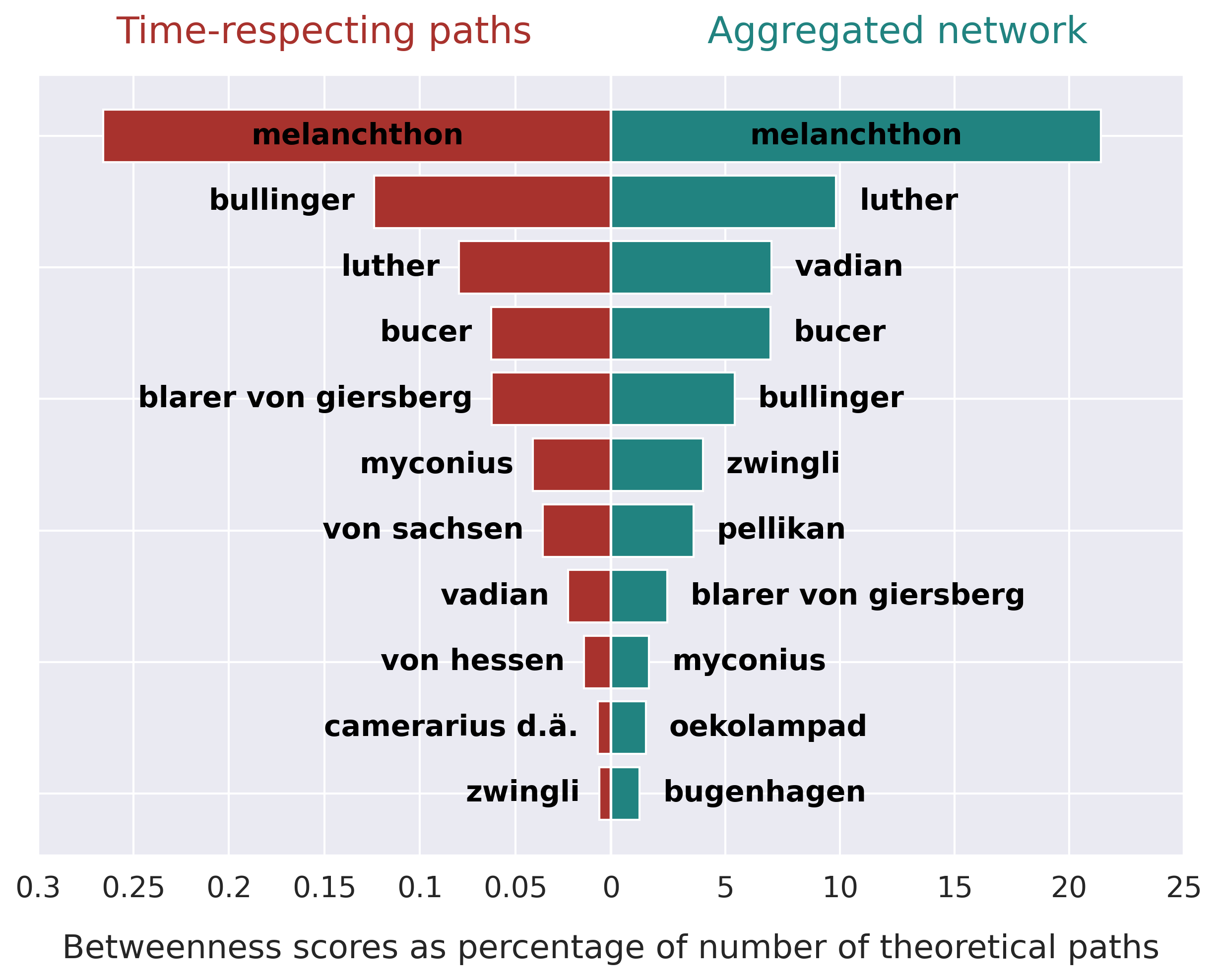Tracing the Footsteps of Ideas: Time-respecting Paths Reveal Key Reformers and Communication Pathways in Protestant Letter Networks
Ramona Roller
SocArXiv (2023)
Abstract
The transmission of ideas plays a vital role in shaping society, fostering critical thinking, driving innovation, and facilitating cultural development. Previous studies have predominantly employed aggregated networks to investigate how ideas propagate through interactions and relationships among individuals. However, these approaches overlook the temporal ordering of interactions, distorting topological network measures and potentially leading to erroneous conclusions about idea transmission. To address this limitation, this study explores the transmission of ideas using time-respecting paths. A time-respecting path is defined as a sequence of nodes connected by time-consecutive edges, where the inter-edge time is constrained within specific bounds representing the minimum reaction time and maximum memory period before ideas fade away. By constructing time-respecting paths from a network of letter correspondences among 16th-century protestant reformers, this research unveils key reformers and communication patterns that significantly influenced the transmission of ideas. The findings are interpreted in the light of case studies, such as the Osiandrian controversy, which provides valuable insights into historical contexts.

